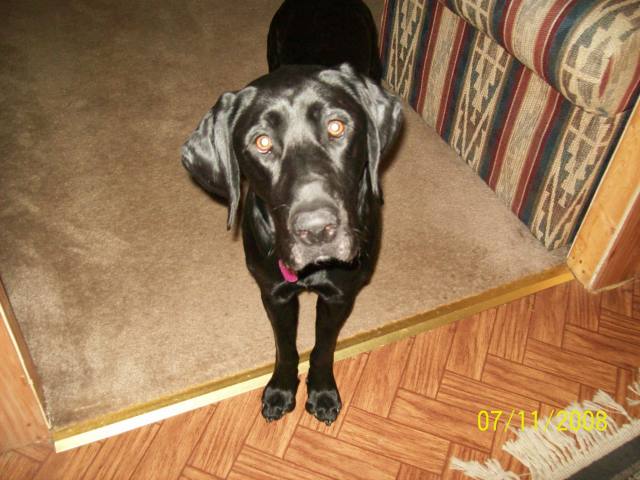QuestionMy dane is having rear end problems. He does not seem to be in pain. He walks and runs fine and as much as he can. However, of late his back legs seem to collapse when he backs up or twists the wrong way and he has a hard time getting back up. He has always been stiff in the mornings but is usually fine after awhile. He had a problem doing the splits on the kitchen floor until we put a runner down and he has tumbled down the hills around here in his hurry quite a few times. Trip to the vet last week for xrays which showed no problems. Four days into a script for deramaxx 100mg and he seems to be getting worse. Could he have a pinched nerve or something? Any ideas?
AnswerIf the radiographs (x-rays) showed no signs of problems and ruled out hip displasia I would suggest that you have your veterinarian, or a specialist, give your dog a complete neurological exam. Going by the information in your question it is possible that there could be nerve damage, but if the animal is able to use the leg it should not be too severe, but could progress into a more severe case if continued damage occurs to the nerve. Since you mentioned that the dog had been doing splits on your kitchen floor nerve damage is possible, there is a nerve (obturator nerve) that can easily be stretched if it is pulled too tightly. Look for any muscle degeneration on the side that is injured, if the muscles look smaller it could indicate a neurological problem. Also a possibility is simply that he has pulled a muscle or over extended a tendon, in either case it will take time to heal and supportive medications can help. Also on the amount of time on deramaxx, which in an anti-inflammatory drug, give it a few more days before you get too worried. It takes time for injuries to heal and for medications to work to their fullest ability. Also there are joint disorders that could be causing pain: infection, inflammation, a small fracture, etc... but most of the time these things can be seen on radiographs and your vet most likely would have noticed them. My suggestion is to give the medications until they run out and if there is no improvement have more radiographs taken to double check that there are no bone problems (small fractures, joint problems, etc...) or get a neurological exam on the dog. Hope this helped, and if you would like more information just let me know.

 chihuahua pees on bed
Questionme and boo
QUESTION: I have a 9 month ol
chihuahua pees on bed
Questionme and boo
QUESTION: I have a 9 month ol
 Pinched nerve
Question
Agustus Tybierius vonG
My 4 y/o, intact male G
Pinched nerve
Question
Agustus Tybierius vonG
My 4 y/o, intact male G
 What type of do is my dog Abby
Question
Abby Abby
what type of dog is my
What type of do is my dog Abby
Question
Abby Abby
what type of dog is my
 My 2 yr old blacks eating habits.
Question
Pic of Tula
I have a 2yr old black lab. Her an
My 2 yr old blacks eating habits.
Question
Pic of Tula
I have a 2yr old black lab. Her an
 Dog aggression towards puppy
Question
The father and his pup
My older dog is an Amer
Dog aggression towards puppy
Question
The father and his pup
My older dog is an Amer